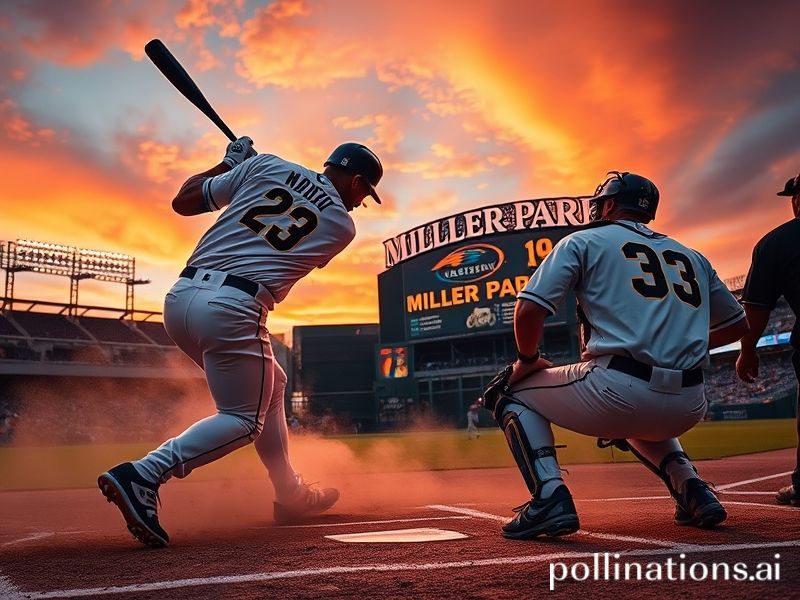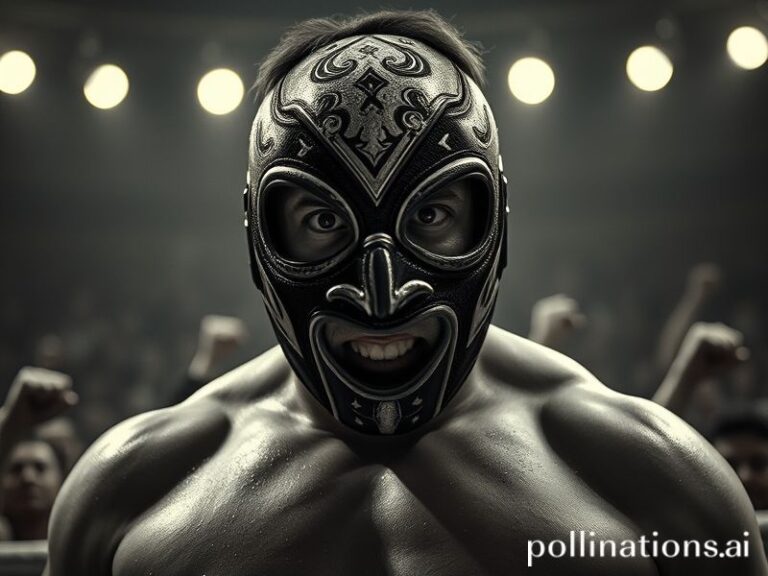Brewers vs. Padres: A Global Trade War in Nine Innings
Friday evening in Milwaukee, and the only thing colder than the lake-effect wind is the existential dread creeping in past the seventh-inning stretch. The Brewers—an outfit whose name still sounds like a failed microbrewery IPO—are hosting the Padres, a team whose branding evokes Catholic guilt and surfer slang in equal measure. To the uninitiated, it’s just another interleague shrug on the MLB calendar. To the rest of the planet, it’s a miniature morality play about empire in decline, broadcast via satellite to sports bars from Lagos to Lahore where insomniacs wonder why Americans need 162 games to determine which billionaire’s yacht gets a new teak deck.
Start with the uniforms. The Padres’ sand-camo alternates—originally intended to honor the naval base down the road—now read as accidental commentary on forever wars. Somewhere in the Hindu Kush, a drone pilot streaming the game on a choppy military VPN chuckles at the irony: he’s wearing the same pixelated beige, and he, too, is stuck in extra innings. Across the infield, the Brewers sport a shade of blue so aggressively cheerful it could run for office on a platform of artisanal tax breaks. Both palettes are manufactured in the same Vietnamese sweatshops, because globalization insists even our tribal color wars share supply chains.
Then there’s the pitching matchup: a Nicaraguan right-hander who once risked cartel kidnappers to reach Double-A versus a Canadian lefty whose slider was refined by a Japanese pitching lab that also designs rice-cooker algorithms. The ball itself—stitched in a Costa Rican factory where workers earn roughly one Christian Yellich per annum—carries the invisible fingerprints of five continents before it even reaches the catcher’s mitt. When it’s fouled into the stands, some tourist from Düsseldorf will take it home as a souvenir, blissfully unaware it has more passport stamps than he does.
The scoreboard, naturally, is sponsored by a crypto exchange currently under SEC investigation. Every strikeout triggers an animated NFT of a sausage race, because nothing says “future of finance” like anthropomorphic bratwurst sprinting toward insolvency. Meanwhile, the stadium’s smart concessions track biometric data so the algorithm knows precisely when you’ll crave a $14 churro. Somewhere in Brussels, a GDPR compliance officer wakes up screaming.
Between innings, the jumbotron showcases the “Arctic Tailgate,” where fans grill brats in sub-zero temperatures to prove Midwestern hardiness—a ritual that looks suspiciously like Norse Valhalla cosplay. In the luxury boxes, hedge-fund managers discuss shorting the peso while Padres relievers warm up to Bad Bunny, whose global streaming royalties could finance the entire Dominican winter league twice over. The whole spectacle is beamed to Seoul, where a K-pop idol live-tweets existential confusion: “Why are they drinking beer in the snow? Is this a punishment?”
By the eighth, the game is tied, because neither bullpen wants to admit that throwing 98-mph fastballs is a poor long-term retirement plan. In the stands, a British exchange student tries to explain cricket strategy to his American hosts, who respond by offering him ranch dressing on everything. On the concourse, a mariachi band plays “Roll Out the Barrel” in perfect three-part harmony, inadvertently summing up 400 years of colonial trade routes in under 90 seconds.
When the final out mercifully lands in center field—an Uber driver from Caracas who still wires half his paycheck home—the score is 4-3, or maybe 5-2, or possibly we all lost. The important part is that the parking lot will take 47 minutes to empty, roughly the same time it takes the United Nations to pass a non-binding resolution on anything. Somewhere, a data-center in Iceland hums louder, digesting the night’s 3.7 terabytes of high-definition ennui.
And so the world spins: empires rise, empires fall, and somewhere in the middle, grown men in polyester pajamas chase a little white sphere across a manicured lawn, convinced it matters. Which, in the grand scheme, it does—if only because we’ve collectively agreed that the alternative is watching the news.







